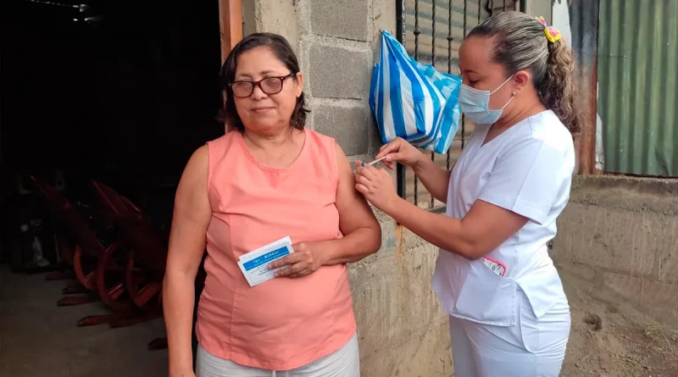(2022-11-30). Nicaragua's Inconvenient COVID Victory: Western Media Covered Up Its Success. orinocotribune.com By John Perry Nov 24, 2022 | In Nicaragua, Latin America's third poorest country, people who don't work don't eat. Three-quarters of jobs are in small businesses and farms or the informal economy. So, when its first Covid case was diagnosed on 18 March 2020, Nicaragua's President Daniel Ortega knew that shutting down the economy would be catastrophic. | He was under pressure from all sides to introduce strict restrictions. Among Nicaragua's neighbours, El Salvador registered its first case on 18 March and imposed a lockdown two days later; Honduras did the same; Costa Rica imposed a lockdown on 16 March and…
(2022-11-28). US Sanctions and Economic Conditions Drive Nicaraguan Migration. libya360.wordpress.com John Perry Blaming migration on "repressive dictatorships" allows Washington to pretend that its policies are helping Nicaraguans, when in fact they are impoverishing them. Why are more Nicaraguans heading north to the United States looking for jobs? Until July 2020, numbers were tiny. But in the last 1 Ω years numbers have increased sharply. Suddenly this…
(2022-11-28). US sanctions and economic conditions drive Nicaraguan migration, while Washington blames repression. thegrayzone.com Blaming migration on "repressive dictatorships" allows Washington to pretend that its policies are helping Nicaraguans, when in fact they are impoverishing them. This article was originally published on November 23, 2022 by COHA. Why are more Nicaraguans heading north to the United States looking for jobs? Until July 2020, numbers were tiny. But in the last 1 Ω years numbers have increased sharply. Suddenly this has become a story, and government detractors argue, with little evidence, that people are fleeing political …
(2022-11-28). Nicaragua's humane response to COVID-19 crisis. workers.org  When Nicaragua identified its first COVID-19 case on March 18, 2020, President Daniel Ortega understood that shutting down the economy would be catastrophic for the country's informal farmworkers. In Nicaragua, three-quarters of all jobs are in farming. If workers don't work, they don't get paid. Public health care worker from . . . |
When Nicaragua identified its first COVID-19 case on March 18, 2020, President Daniel Ortega understood that shutting down the economy would be catastrophic for the country's informal farmworkers. In Nicaragua, three-quarters of all jobs are in farming. If workers don't work, they don't get paid. Public health care worker from . . . |